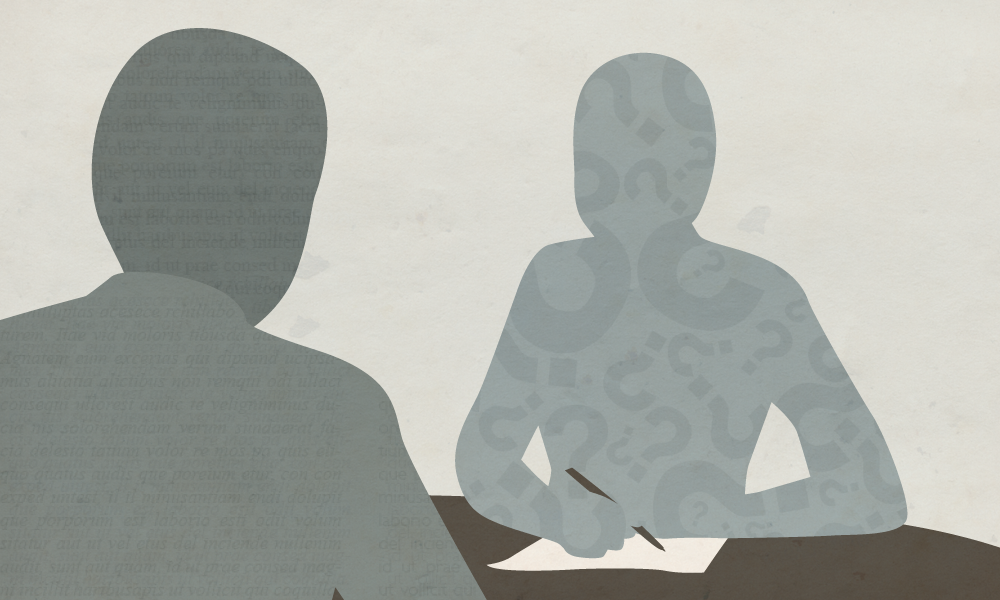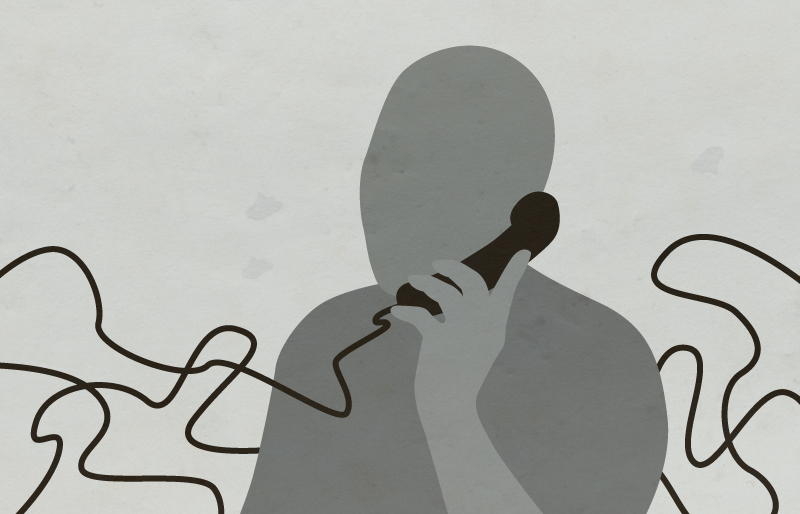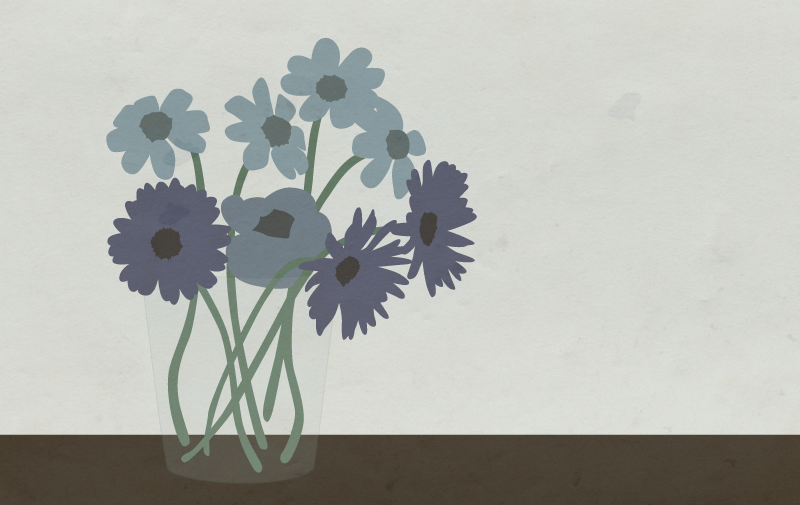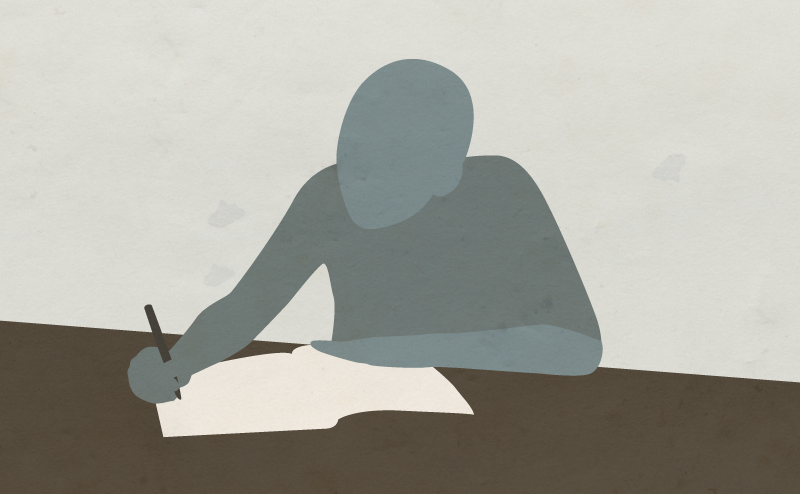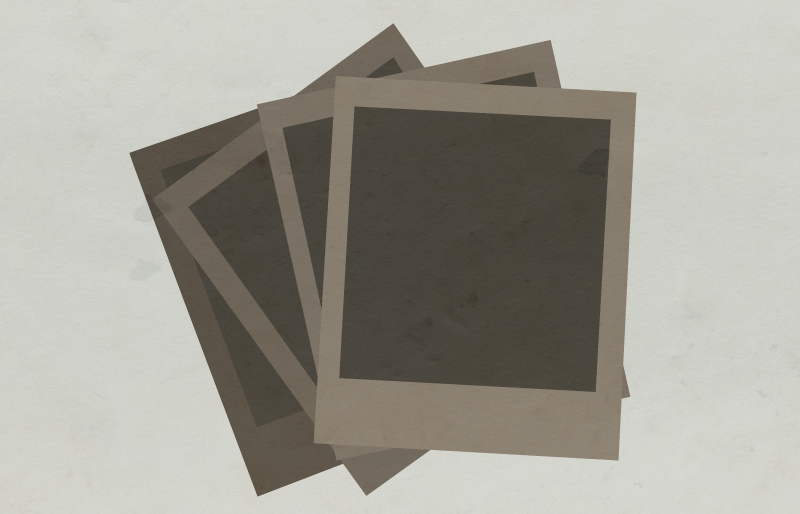One might think this old man at the Marina del Rey Farmer’s Market is in his last days. But the twinkle in his eyes gives away his joie de vivre. He is dressed in a gray herringbone suit, a white shirt with gold cufflinks, and a necktie. Not the usual hey-I’m-going-to-the-farmers-market attire. He could afford the suit: Before he retired he was a furrier. Now he’s a widower on the prowl. His hair is white, where he has it. He is mostly bald with ears that fall from his head like rose petals. He speaks with a heavy Yiddish accent. And behind the accent, behind the eyes, he holds secrets. It’s my job today to get at those secrets. This man, Murray, my Grandma Eva’s first cousin, knew the very house where she was raised, whom she resembled, why she came to America alone. He knew the tenor of her voice, the way she held her tea or coffee, her kindnesses. He knew her. I did not: I never knew her. She died six years before I was born, and I want him to fill in the gaps. He knew her in a way even my father, her eldest, never could have.
It is Sunday, January 13, 1991. He waves hello to me, so I must remind him of someone. My grandmother? My grandfather? Either of my parents? I don’t know whether to hug him, shake his hand, or do the European one-kiss-per-cheek thing. While I’ve been waiting for this moment, to meet this man from the other side of the pond, I am frozen to the spot, the way a Passover matzah ball lays in the stomach. My mother had his Los Angeles address in her ancient address book. I wrote him a letter, and then we spoke on the phone when I found out I needed to represent my employer, AT&T, in San Diego at some cellular industry trade show. Finally, I had a business reason to travel to southern California. I never knew my grandmother, my father’s mother, but here, today, I get to know her cousin, Murray. He sounded excited on the phone. I wonder if my grandmother sounded like him — or did she lose her accent over the years? But I wonder about his life, too, and about his personal losses.
This is what I know, or what I think I know, about him based on my one year so far of delving into the family history: He is the son of my grandmother’s Aunt Frieda. He and his younger brother, Bernhard, escaped from Vienna and went first to Switzerland and then to London around 1938. My father met up with them in 1945 and had photos of them at Trafalgar Square to prove it. Murray’s parents and sister, Eva, were exterminated during the Holocaust. Another cousin had been with the U.S. Army and found a note tacked to their apartment door that they had been removed to Minsk.
Serendipity has brought me here, and I know the highlight of my trip is Murray. We arrange to meet at 10 a.m. It is a balmy day, the kind of day you could spend hour after hour sipping cocktails poolside. But here there is no aroma of chlorine, and it’s too early to drink. The place, a blend of inside counters and outside turquoise awnings, is already busy. We sit at a round table covered with a linen cloth. Behind Murray are stowed-away orange cones and a food stand too, its purchasable items listed on a blackboard in white removable type. The walls of the market are a periwinkle tile, the kind you might find in a Florida bathroom, and I make out the smell of tropical fruits, probably to be blended into California smoothies. The tables and chairs remind me of a wedding set-up, but a casual one, like the one I attended of my then-husband’s University of Kansas college buddy in Lawrence, where they served tuna sandwiches as the main course. I was totally overdressed in a two-piece satin suit, but here, in jeans, a pink turtleneck, and black cardigan embroidered with flowers, I fit right in — except for the cold sore on my lip, and I am embarrassed that this will be Murray’s first impression of me. I hope he overlooks it, but that may prove difficult. He is, after all, five-foot-four, and I am five-foot-nine.
I suspect Murray’s been a regular Farmer’s Market customer for years. Maybe it reminds him of Market Day back in his Austro-Hungarian shtetl, where peddlers shrieked their wares one day a week — pots and pans, fish, fowl, books, ribbons — everything one might need for daily existence. Even I visited the market every Saturday morning in Konstanz, Germany during my junior year abroad to buy fresh flowers for my stuffy dorm room and a sausage because I can’t resist them.
He takes my hand in his before we sit down. “Chava Pesia,” he says. “You are the granddaughter of Chava Pesia.”
“Why do you call her that?” Because Pesia was her mother’s name. We take seats close enough to talk and far enough to face each other.
He leans back in his chair and smiles. “Because I had a sister Chava and there was Chava Pollack. So many girls named Chava after their grandmother. She died, you know, in an accident over the river.”
“So you attach the mothers’ names to each of the girls?”
He nods.
I take out a legal pad with my list of prepared questions. But my questions seem too rigid, too boring for the likes of him. He’s an imp, a leprechaun, and I’m certain he has stories to tell.
“I was born in Zborow in 1910,” he says. “That’s in Galizia, now the Ukraine. But it was Poland before. During the First World War, I must have been not even ten yet, bombs were falling over our heads, we were on the front, so we moved to Vienna, the five of us.”
I wonder if it pains or pleases him to talk about family so long ago, family that decided to stay in Vienna.
“My parents decided we boys should leave,” he says.
“That must have been one heck of a family discussion.”
I can imagine them around a dining room table, his mother wringing her hands and her daughter comforting her. Voices raised in Yiddish. Lots of hand gestures. Yes, the boys must go. They may never see each other again.
But I am determined to get through my questions about my grandmother. I fire my first question: Any idea when Herman and Pesia Zuckerkandel died or how old they were when they died? I see him as a stand-in for my grandmother, not as the man who somehow made his journey after the war to Holland and then back to Vienna. I don’t ask him where he was during the war.
He tells me my grandmother gave a party for him when he arrived in 1948 on the S.S. Queen Elizabeth from Southampton. She sponsored and paid for his immigration, just like she did for her own baby brother, the only surviving member of her birth family in 1951. He points her out specifically, because other relatives, he says, didn’t want to help but they attended the party nonetheless. I could probe here, but I don’t. Is it because I don’t want to hurt him, I don’t want him to think of unpleasant events, places, and people? Or am I just inexperienced and holding on too rigidly to my own agenda?
I take notes in my genealogy notebook. I don’t think to record it to preserve his stories, his voice, his laughter, his sadness, for posterity. I now ask about the Evas: Of Eva Pollak, Eva Zuckerkandel, Evelyn Sass, and Eva Adler, who was the eldest? When was the eldest born? I start mapping out a family tree, starting off with their grandparents. Their daughters each named a daughter after their mother.
Murray is obliging. He answers my questions, but he wants to tell me his own story and stories about the family. He says his mother and Aunt Tschantsche Pollak (she called herself Jenny in America) were like twins. He says, “In our house, there was always talk of the Pollaks.” Murray applied to come to America in 1938, to be sponsored by Adler cousins who belonged to the Zborower Society, a landsmanschaft, town-based society who helped their own and maintained their culture. They never sent an affidavit, though. When Murray arrived in America as Moses Adler, he lived with the Pollaks. He says Aunt Tschantsche, a widow, did button and fur piecework. His cousin Izzy Pollak would give her a few dollars, too. Aunt Tschantsche didn’t want her children — Eva, Izzy, and Sarah — to have a stepfather, and at least one daughter didn’t want her to remarry, although according to Murray, she’d had opportunities. Murray became a furrier and my grandmother ordered Persian lamb from him. He only stayed in the New York area for a year and a half.
“I came to California the end of 1949,” he says. “It was a vacation, and I liked it here. I never returned to New York.” He married Mary Marofsky in 1951. She died of a heart attack in 1986. He misses her terribly, still.
He tells me my grandfather was a small man. Sure, at five-foot-six, my grandfather was short. But Murray is two inches shorter. Still he insists, “He must have been a good business man, but Eva was the boss.” Murray gives me contact information for my grandmother’s sister-in-law, her youngest brother’s surviving wife, in Florida.
We promise to stay in touch. But we don’t. I don’t. I’m not a phone person and letter writing has gone out of style. Maybe he has a computer, but I don’t even ask about that. I think I got what I came for: names and dates, glimpses of my grandmother. But it’s taken me years to realize I didn’t.
It’s now 2017, and I am still appalled at what I didn’t ask. I never asked what happened to him during the war, or how he felt when he learned of the fate of his family. I am nauseated by my inability to ask him the penultimate and most difficult question: What was it like to survive the worst tragedy in modern history?
I am embarrassed at what I did ask. Rookie questions. But then I had only been working on the family history for about a year. I hadn’t yet done any archival research, hadn’t yet hired researchers in Lviv and Warsaw. Here is the list of questions I brought into the interview:
- Was Herman Zuckerkandel’s name Enoch? Did he come from Tarnopol?
- What did Herman do?
- Were Frieda and her family religious?
- What did your father do? Why did you move to Vienna?
- Do you know of any relatives who died during the Holocaust?
- Do you have any pictures of your mother’s family? Eva?
- Do you know when Frieda et al. were orphaned? How did they get to be orphans? [They weren’t.]
- Is there a family cemetery plot? Where is it? Who bought it?
- Do you have any old letters written by family members?
- Are there any diaries?
- Do you know anyone who would have old family documents?
- Why did Eva and Tschantsche come? When did Tschantsche come?
- Do you know any stories that might have told about life in Kozlow/Tarnopol?
- Do you remember any stories about your grandparents?
- Can you describe your mother and sister? What were they like?
- How did the Holocaust affect you?
- What was your wife’s name? When did you marry?
- When is your birthday? Your brother’s?
I never even asked how the heck to spell Tschantsche. I did not uncover his secrets. I think I skipped the questions about the Holocaust. I did not record the interview. I failed as an interviewer and family historian.
After our face-to-face meeting, we exchanged letters for a while. I think it pleased him to correspond with Chava Pesia’s family. He sent me a change-of-address form in 1995. He was getting married again at 85 and moving to Miami Beach. Between his move and my job and single motherhood, we lost touch. According to Ancestry.com, he died at age 100 in 2010. All those years I could have, should have, been in touch. But I wasn’t. He had no children.
Last night, I found an Austrian website and Bernie Adler’s Holocaust testimony. He never mentions Murray, only their parents and sister. I was horrified at what I learned. Three days before Hitler invaded Poland, the family tried to immigrate to Switzerland and were turned away at the border. Their father’s bakery was destroyed during Kristallnacht. He says he was 12 when he traveled to England with a Kindertransport on November 12, 1938. No one wanted to adopt him; he lived in a training camp for youth for a year. At age 16, he moved to London. In 1940, he received his last letter from his parents and Eva. In his testimony, Bernhard notes that their father worked with the Alliance Israelite and got two tickets for the Kindertransport for him and Eva. He says she was three years older. But my photos of the three children and the birth information defies that. Eva was 14 years older than Bernie and was already 30 years old in 1938. Murray was 12 years his senior and was 28 in 1938. I have to question whether Bernie’s memory has been tainted. Still, his words feel true when he refers to his parents’ last letter, saying that they and his sister were brought to Russia, where they would live in their own Jewish state — or so they were told. He learned later, I don’t know how, that they were removed to Minsk, had to dig their own graves, and then were shot in the head. And that dining room conversation I imagined? Bernhard told his interviewer that they thought this crazy Hitler would soon disappear.
I am filled with remorse. I should have kept in touch with Murray. I should have asked him about his own life. But I was so wrapped up in trying to find my grandmother that I ignored the courageous person sitting across from me at the Farmer’s Market in Marina del Rey. I looked through my box of family photos, and now I can’t find one of him with my father and Bernie. But I do have one of him cutting challah at a naming ceremony for my cousin’s daughter in Marina del Rey. He wears a blue plaid suit jacket and an embroidered yarmulke. I wonder if it brought back memories of his father’s bakery. Even though I dropped the ball, my cousin maintained connections, at least for a while. I have the photo of him, probably from the mid-1920s, with his brother and sister. They are all dressed in their finest. He wears a buttoned-up celluloid collar and necktie with his suit. Eva is holding a bouquet of flowers, and Bernie, in his knee-pants and white leggings, looks like the Jewish-Viennese version of Little Lord Fauntleroy. I have a photo of them with their parents taken in the 1930s that again seems to refute the testimony Bernie gave. He looks far older than a child eligible for the Kindertransport. And then there is the photo from my grandmother’s velvet photo album of Murray, when he was still called Moische, dressed in his Russian peasant tunic, standing next to his cousin Izzy Pollak and his own sister, who’s carrying a child-sized purse: two of them never suspecting they’ll be living on two different continents and none of them expecting the Holocaust and Eva’s extermination as they stand before the photographer in Zborow.
Photos are all I have left to remind me of my day with Murray. I don’t know what to do with my remorse. His generation is gone and most of the next one is gone, too. But at least I had that one day and can still feel the warmth of his hands and that twinkle in his eyes. •
All images created by Shannon Sands.
